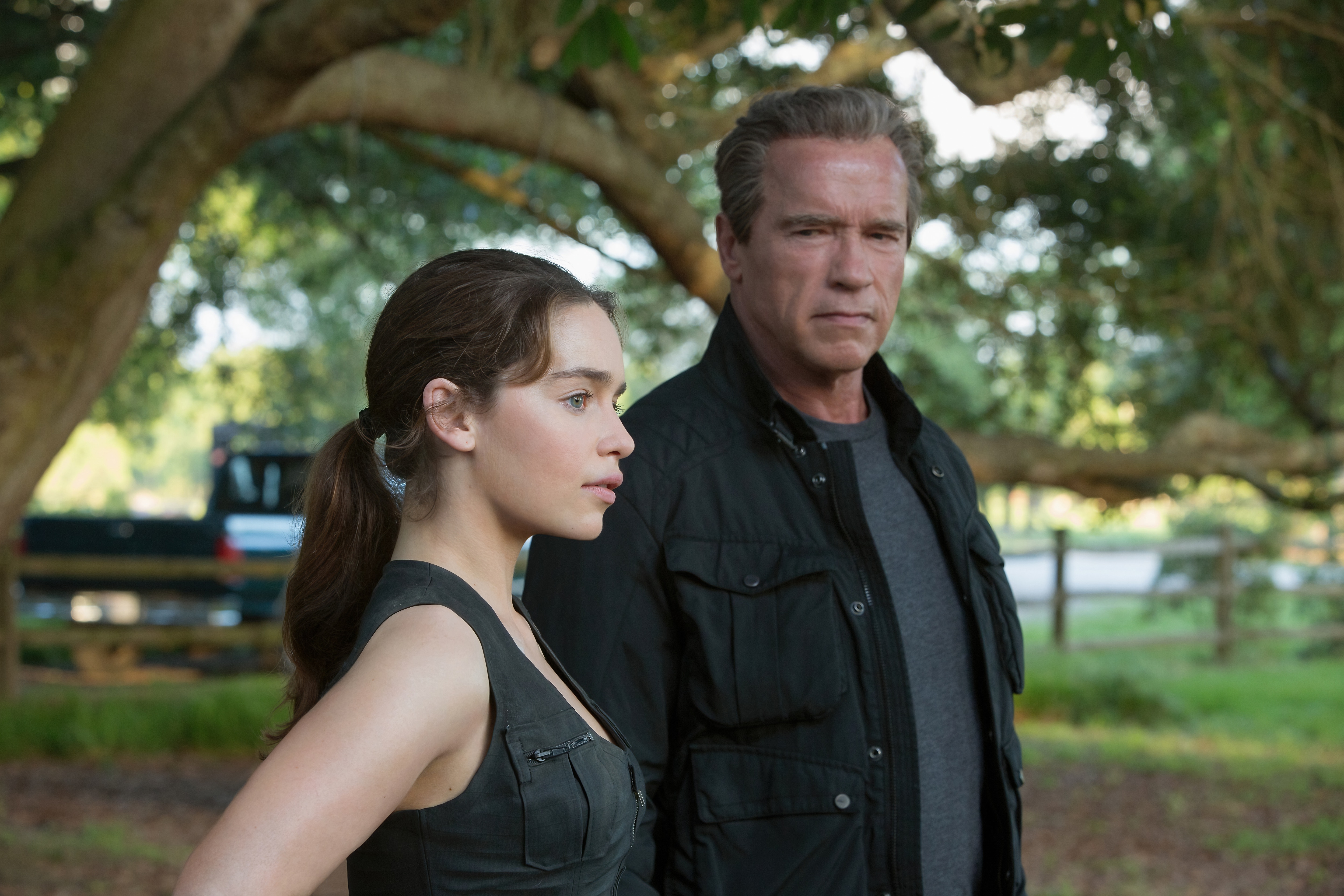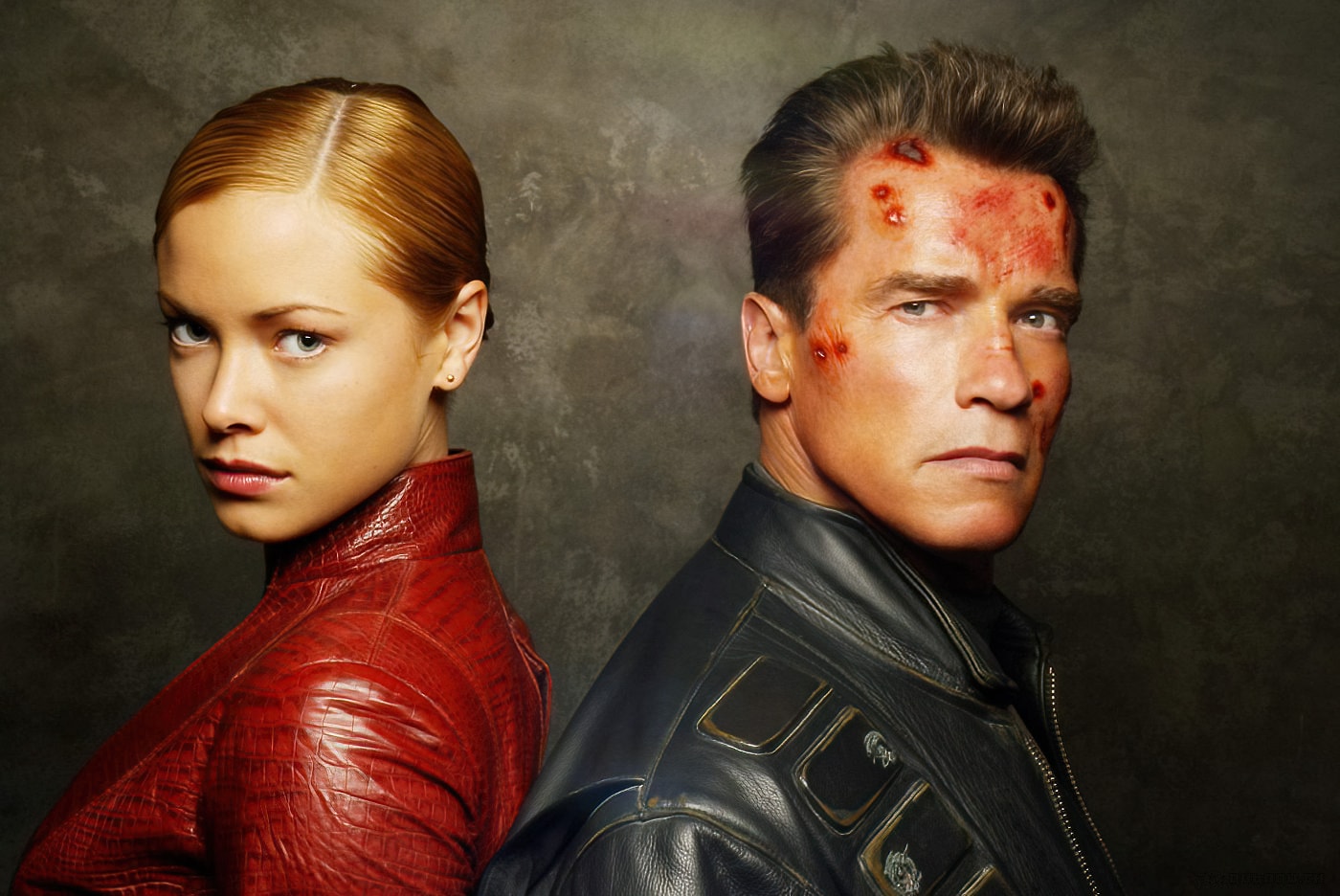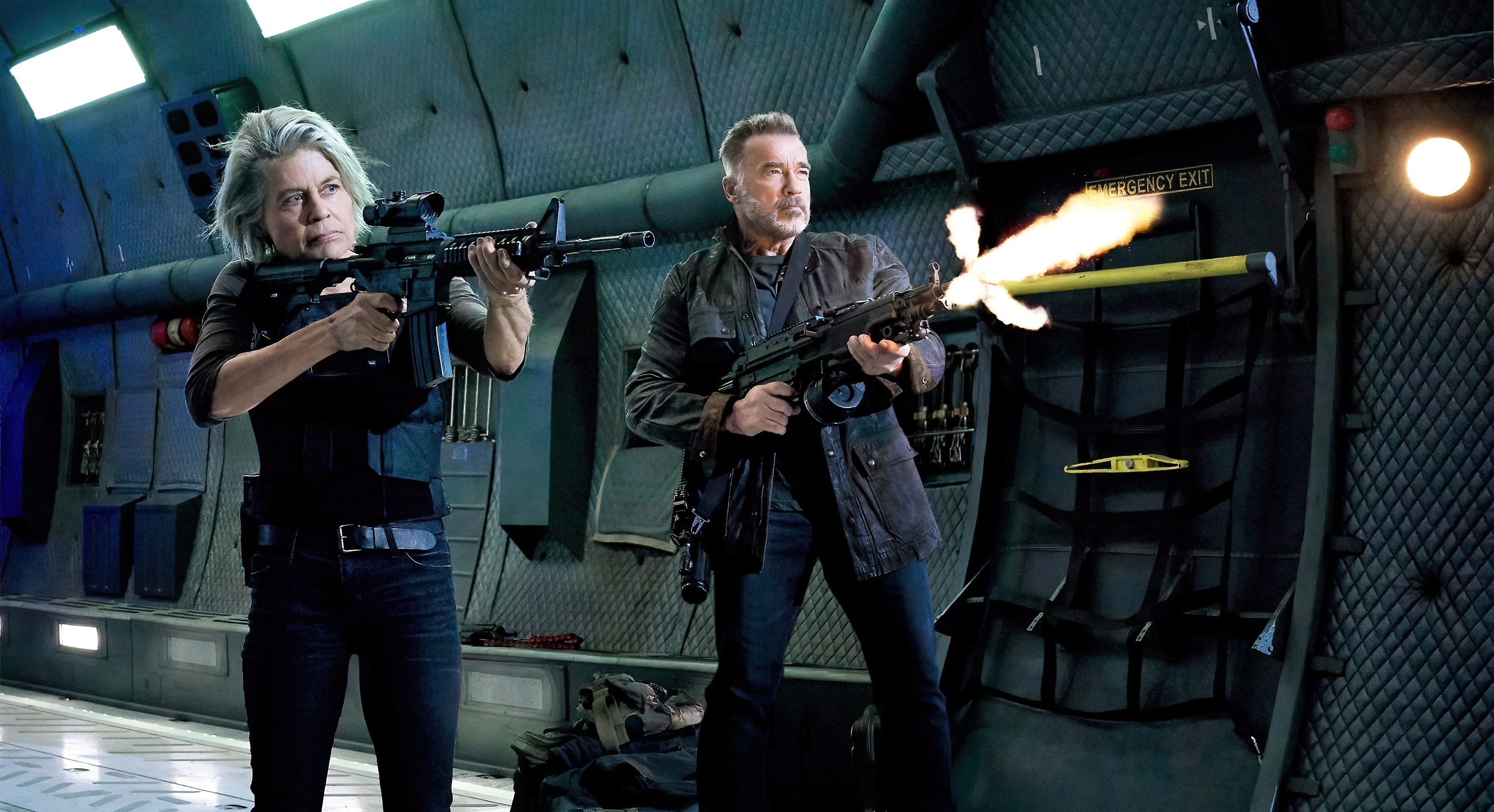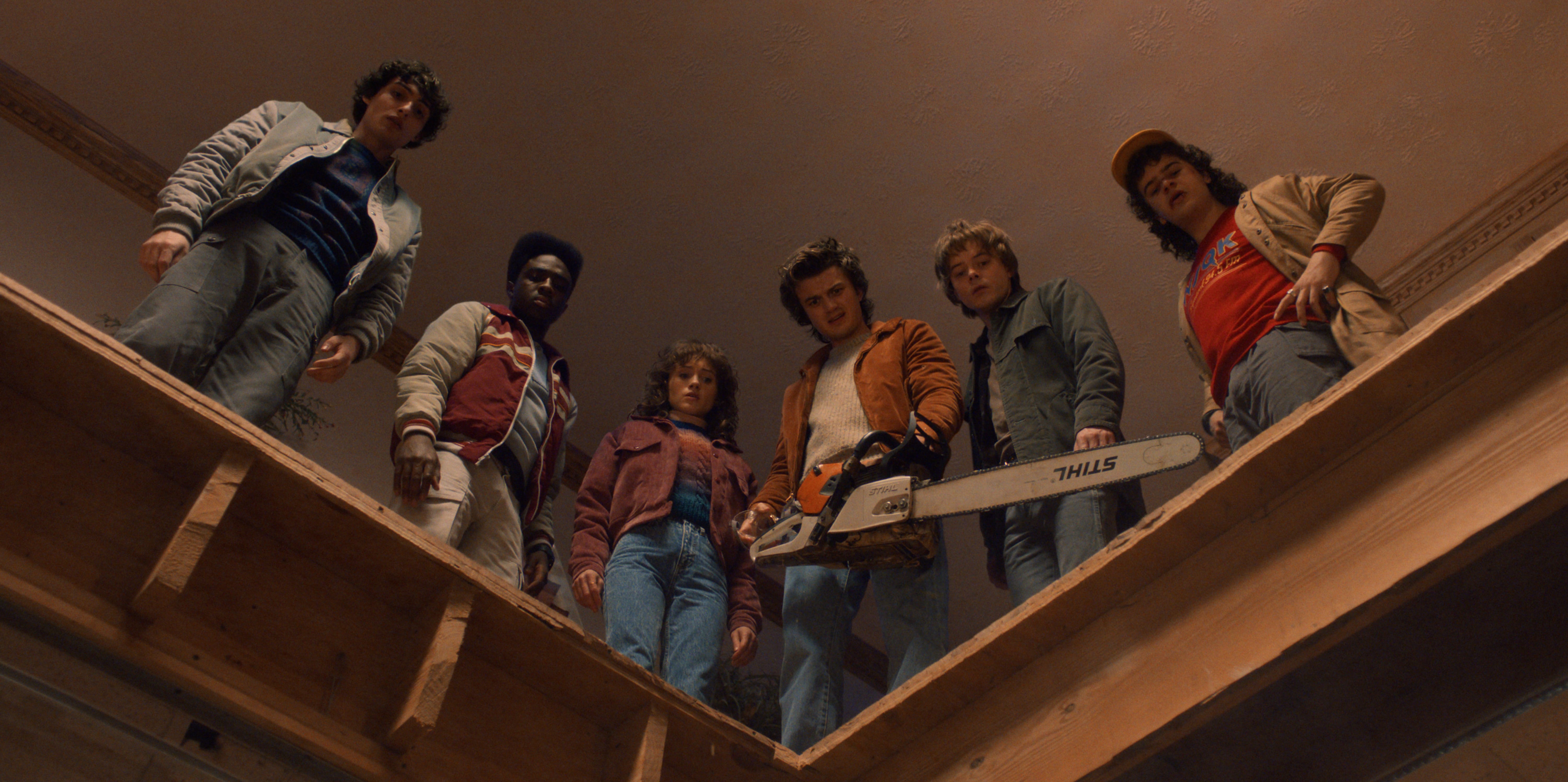
TERMINATOR: GENISYS – When the Machines Should Have Stayed Offline
In 1984, The Terminator stormed onto screens with a singular vision: gritty, relentless, and terrifyingly original. James Cameron’s low-budget sci-fi masterpiece gave us Arnold Schwarzenegger as the perfect killing machine, a role that became one of the most iconic in film history. Fast forward to 1991’s Terminator 2: Judgment Day, and Cameron upped the ante, crafting one of the greatest action films ever made—a thrilling, emotional ride that also proved Schwarzenegger could deliver both blockbusting action and genuine heart. With such a legacy, it’s almost painful to say that Terminator: Genisys—the fifth installment in the franchise—has nothing of the magic, intelligence, or coherence that made those earlier films classics.
In fact, Genisys is not just bad. It’s franchise-killing bad. It’s a $155 million exercise in misjudged nostalgia, convoluted plotting, and shameless cash-grabbing. And despite Arnold Schwarzenegger’s best efforts to salvage the wreckage, even the charisma of the T-800 can’t save this movie from its worst enemy: itself.
A Storyline Caught in a Time Loop of Stupidity
The original Terminator films were about more than robots shooting guns. They were tight, gripping thrillers with a clear sense of stakes, pacing, and logic—even with their time-travel shenanigans. Genisys, by contrast, takes the franchise’s time-travel premise and cranks it up to 11, smashing it to bits in the process.
The plot begins in familiar territory, with Kyle Reese (Jai Courtney) sent back to 1984 to protect Sarah Connor (Emilia Clarke) from the original Terminator. But instead of playing out the way we know, Reese lands in an alternate timeline where Sarah is already a battle-hardened warrior, having been raised by Schwarzenegger’s reprogrammed T-800, whom she affectionately calls “Pops.” Yes, Pops. That’s the level of seriousness we’re dealing with here.
What follows is an incomprehensible jumble of rehashed set pieces, exposition dumps, and timeline rewrites that strip the franchise of all its mystique. Instead of building on the tension and terror of the original films, Genisys tries to do everything all at once: it’s a reboot, a sequel, and a prequel—and it fails miserably at all three.
By the time the plot reveals that John Connor (Jason Clarke), the very savior of humanity, has been turned into a half-human, half-Terminator hybrid by Skynet, you might find yourself wondering if the writers (Laeta Kalogridis and Patrick Lussier) even liked the original films. It’s like they took everything that made the series special and decided to throw it into a blender, leaving behind a convoluted mess with none of the emotional depth or urgency that defined the franchise.
Schwarzenegger Tries, But Even He Can’t Terminate This Disaster
Arnold Schwarzenegger’s return as the T-800 was supposed to be the big draw of Genisys, but even his presence feels hollow. Schwarzenegger does his best with the material, and there are moments where his natural charisma shines through—like his deadpan delivery of “Old, but not obsolete.” But instead of playing the menacing figure he was in the original film or the compassionate protector of T2, Genisys reduces him to a bizarre caricature.
Schwarzenegger’s T-800 is now a wisecracking father figure, complete with awkward attempts at humor and scenes of him smiling (an image that will haunt me more than any Terminator endoskeleton ever could). It’s like the filmmakers thought audiences wanted to see the Kindergarten Cop version of the Terminator, forgetting that what made the character so compelling was his stoic, machine-like presence.
In comparison to his earlier work in the franchise, this is Schwarzenegger’s most disappointing outing as the T-800. The original Terminator was a near-perfect embodiment of cold, unfeeling destruction. His turn in T2 gave the character surprising emotional depth. Here, he’s reduced to a punchline, and it feels like a betrayal of everything that made the character so iconic.
A Cast That Feels Miscast
It’s hard to talk about Genisys without mentioning the painfully flat performances from its leads. Jai Courtney’s Kyle Reese is the definition of miscasting. Michael Biehn’s original portrayal of Reese in The Terminator was a perfect mix of vulnerability and desperation, a man who had lived through hell and was willing to sacrifice everything for Sarah Connor. Courtney, on the other hand, delivers his lines with all the emotional depth of a mannequin.
Emilia Clarke fares no better as Sarah Connor. In Terminator 2, Linda Hamilton transformed the character into one of the most iconic female heroes in cinema—a fierce, battle-scarred warrior with depth and nuance. Clarke’s version, however, is bland and lifeless, lacking any of the grit or intensity that made Sarah Connor so unforgettable. It doesn’t help that the script gives her little to work with, forcing her to spout awkward dialogue and engage in a completely unconvincing romance with Reese.
Jason Clarke’s John Connor, meanwhile, might go down as one of the worst character assassinations in movie history. Turning the leader of the human resistance into a villain could have been an interesting twist, but the execution is so clumsy that it feels like a slap in the face to fans of the series.
CGI Overload and Soulless Action
One of the defining traits of The Terminator and T2 was their use of practical effects and restrained, purposeful action sequences. In Genisys, the action is a CGI mess—overblown, weightless, and completely unengaging. From a re-creation of the iconic 1984 Terminator vs. T-800 fight to a laughably over-the-top helicopter chase, the action feels more like a video game cutscene than something grounded in the gritty world James Cameron built.
Even the Terminators themselves lack any sense of menace. Compare the T-3000 (John Connor’s ridiculous Terminator form) to Robert Patrick’s T-1000 in T2. The latter was terrifying because of his cold, unstoppable efficiency and the eerie way he moved and behaved. The T-3000, by contrast, is an over-designed CGI monstrosity that inspires more eye rolls than fear.
A Franchise That Deserved Better
What makes Terminator: Genisys such a travesty is that it didn’t need to exist. The first two Terminator films told a complete and satisfying story. Every subsequent attempt to revive the franchise (Rise of the Machines, Salvation, and now Genisys) has felt like a pale imitation, desperately trying to recapture the magic without understanding what made the originals so great.
But at least Rise of the Machines had some dark humor, and Salvation—for all its flaws—tried to take the series in a new direction. Genisys, on the other hand, is a shameless nostalgia grab that doesn’t just fail to honor its predecessors—it actively undermines them.
Final Thoughts: A Glitch in the System
Terminator: Genisys is a misguided, soulless attempt to revive a franchise that should have been left in the past. It’s the rare film that manages to insult both longtime fans and newcomers alike, delivering nothing of substance for either audience.
For fans of Schwarzenegger, this might be the most painful entry in his filmography to sit through. It’s a sad reminder that even icons can’t save a sinking ship. If you’re craving the glory days of Arnold’s career, stick to The Terminator, T2, or even his campy turn in True Lies. Those films showcase the best of what he can do. Genisys, unfortunately, showcases what happens when a franchise refuses to let itself die.
The machines might rise again someday, but Genisys should be permanently decommissioned.

 By Jakob Montrasio
By Jakob Montrasio 









